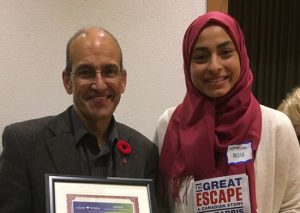
It was at a speaking engagement. I was about to address the University Women’s Club of North York the other night. I had prepared my opening remarks and was just waiting to be introduced. That’s when a stranger approached and asked about my work as a writer. I responded briefly and asked about her career.
“I’ve just begun my first semester at university,” she said, “in engineering.”
“A challenge?” I asked.
“Not so far,” she said and smiled. “I hope it’ll be the right thing for me.”
Her name was Mayyasah Akour. She wore a headscarf and a wonderfully youthful smile of confidence and hope. She told me she and her family had recently immigrated to Canada from Switzerland. She said the classes and lecture groups were huge at the university and that she hoped to branch into the architectural part of engineering.
But before I could find out more, I was introduced and had to begin my talk. We didn’t get a chance to continue our conversation. I wondered how she might make out in what I’m sure will be a competitive profession. I worried whether the sometimes impenetrable world of male-dominated jobs might potentially become a barrier to her progress. I too hoped it would be the right thing for her.
If I’d had the chance I would love to have introduced Mayyasah to Nellie McClung. Among the earliest feminists in Canada, McClung wrote and campaigned for the equality of women and their right to vote like any other Canadian. In 1927, she generated a petition to challenge the “persons” definition in the British North America Act, which ultimately cleared the way for women to vote and serve in the House of Commons and Senate.
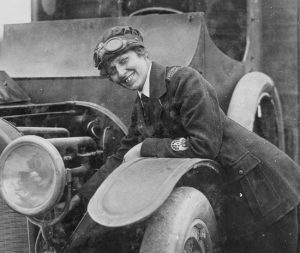
I wish I could have told Mayyasah about Grace Macpherson. Born in Vancouver and of age when the Great War began, she wished to offer her skill and ability as a woman with a car and driver’s licence to serve as an ambulance driver in the Red Cross behind the front lines. Ignored by both the Canadian and British Red Cross, she eventually asked Sam Hughes the minister of militia and war if she could serve. He refused her.
“With your help or without it, Sir Sam,” she told him, “I will serve.”
Shortly after her interview, attitudes suddenly changed and Grace won the right to drive ambulances, on her first night delivering Canadian wounded from Vimy to hospitals at Etaples, France.
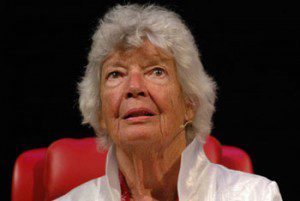
I wondered how this aspiring young woman might have reacted to meeting June Callwood. A no-holds-barred journalist from the 1940s into the 21st century, June’s newspaper articles, books, TV documentaries and support of no fewer than 50 social action organizations, blazed a path for others inspired to follow her example.
“Society must be pushed to change,” she told her friend Theresa Dobko, and went on to found Nellie’s Hostel for women, Jessie’s Centre for teenagers and Casey House Hospice.
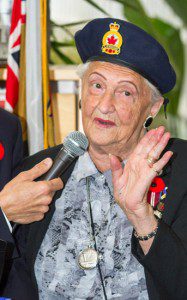
I lamented I wouldn’t be able to tell Mayyasah about my incredible neighbour Ronnie Egan. Like her father before her, she volunteered in the Navy in wartime. But she never allowed a male-dominated armed service to displace her sense of order or fairness, even if it meant ruffling feathers. When faced with a superior officer who didn’t think the Navy was a place for women, she made sure his misogynist attitudes didn’t tarnish the Navy or those who served in it. “I saw to that,” she told me. Her rise to Chief Petty Officer was proof of her willpower and loyalty.
I wished Mayyasah had known my mother, Kay, whose A+ high school grades would have guaranteed her college and a career. But she was needed at home to help get her family through the Depression. I think it would have been equally helpful for her to meet women such as my wife and our two grown daughters. All three have built productive, rewarding careers in communications – my wife as a magazine writer/editor, our elder daughter as an elementary school teacher and our younger daughter as a freelance musician – while also raising busy, demanding children. Mayyasah would have loved that all three have met difficult times, weathered them and proved they can survive, by juggling home and career.
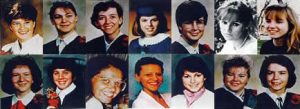
Perhaps most of all, I wished I could have introduced this young woman, beginning courses in engineering, to women such as Anne-Marie Edward, Anne-Marie Lemay, Annie St-Arneault, Annie Turcotte, Barbara Daigneault, Barbara Klucznik-Widajewicz, Genevieve Bergeron, Helene Colgan, Maryse Laganiere, Maryse Leclair, Maud Haviernick, Michele Richard, Nathalie Croteau and Sonia Pelletier. They were training to become engineers too, at Ecole Polytechnique de Montreal. But their murders, 27 year ago next month, because of their gender and career choice, must not deter young Canadian women, such as Mayyasag Akour.
Had she met any of these other extraordinary women I’ve known and admired, I’m sure they would all have told her, “Yes, Mayyasah, your career path is definitely the right thing.”
And I would have agreed.